From being considered “selective towards young audiences”, political art programs have exploded into “national concerts” attracting tens of thousands of people, selling out in just a few minutes. The attraction comes from the combination of tradition and modernity, the strong community effect and the spread of patriotic music , arousing national pride.
From "political stage" to "sold out" fever
In previous years, political art programs – often associated with major national holidays – were still considered by many audiences, especially young people, as not being an option for them. The solemn atmosphere, high level of ritual and traditional staging made it difficult for them to compete with vibrant forms of entertainment rich in technology. Many young people believed that red music performances, familiar revolutionary songs such as “Tien buoc duoc quan ky”, “Muoi 19 Thang Tam”, “Len dang”… were often performed by veteran singers, with standard performance styles, with little innovation, leading to a feeling of “old-fashioned” and difficulty creating surprises.
The stage is mainly linear, with simple lighting, formal costumes, and rarely uses modern visual technology or sound effects. Therefore, while commercial music festivals or entertainment music shows explode with young stars, grand stages, and massive media campaigns, political art nights still often only attract middle-aged or older audiences, who are already attached to this music genre.
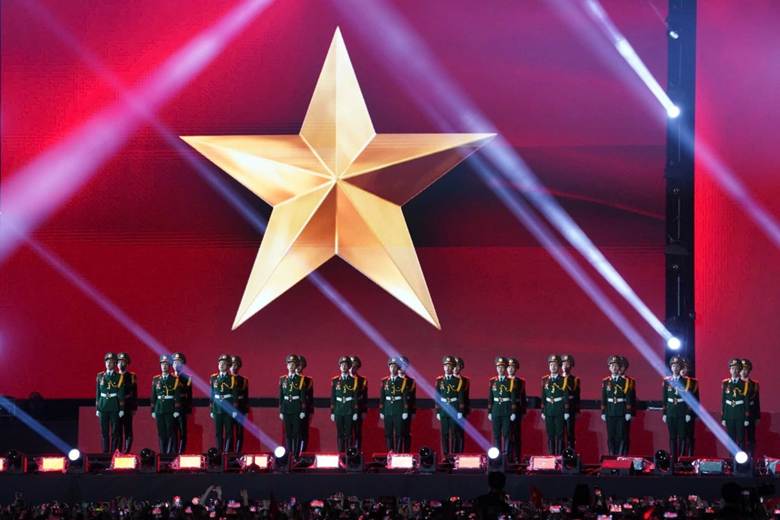 |
| "Fatherland in the Heart" - "National Concert" is being hunted by young people. Photo: Nam Tran |
However, August 2025 witnessed a turning point. A series of art events with tens of thousands of spectators exploded and were affectionately called by young people with a new name: "National Concert". Without the appearance of "S-list stars" or global phenomena, the shows still created an unprecedented ticket fever.
The ticket registration portal for the show “Fatherland in the Heart” at My Dinh National Stadium “crashed” after only 9 minutes, recording about 3 million scans and 20,000 successful registrations. The music festival “V Concert – Radiant Vietnam” also “sold out” after only a few days of opening. This reflects a clear change in audience tastes: music associated with messages of patriotism and national pride is becoming a new trend.
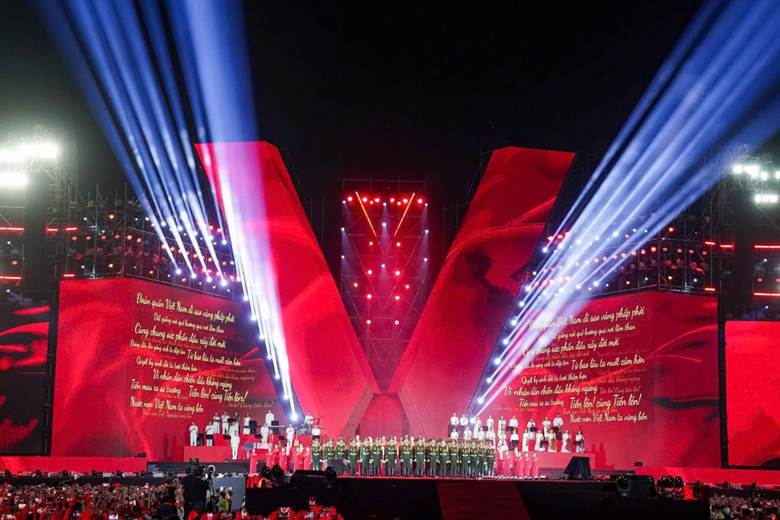 |
| The moment 50,000 people sang "Tien Quan Ca" at My Dinh Stadium. Photo: Nam Tran |
On August 10, more than 50,000 spectators – mostly young people – turned My Dinh into a sea of red and yellow stars. They wore flag shirts and sang “Tien Quan Ca” with artists and 68 soldiers from the Army Officer School 1. Editor-in-Chief of Nhan Dan Newspaper Le Quoc Minh emphasized: “When coming to concerts, audiences often expect the appearance of famous stars. But for us, ‘Fatherland in the Heart’ has no ‘stars’, except for the only star on the national flag. We all come to the program to show gratitude and honor our beloved country.”
Not just music, “Fatherland in the Heart” is elaborately staged, recreating historical milestones through the image of the red flag with yellow star, the V-shaped stage – the symbol of “Vietnam – Victory” – along with a series of scenes combining sound and light that meet international standards. The organizers also installed microphones in the fan zones to record the singing in unison, creating a rare “heart in harmony” effect.
A day earlier, Vietnam Television held “V Concert – Radiant Vietnam” at the Vietnam Exhibition Center. Despite being a ticketed event, all tickets were sold out. VTV Deputy General Director Do Thanh Hai said: “V Concert is part of VTV’s long-term strategy to actively participate in the chain of creativity and development of the cultural industry. These efforts not only affirm the social responsibility of major media agencies but also lay the foundation for a vibrant cultural ecosystem, where traditional values are creatively expressed to reach a wide audience.”
Community effect and inspiration
One of the most impressive moments of the “national concerts” is when tens of thousands of people stand up to sing the “National Anthem”. Musician Van Thao – son of the late musician Van Cao – shared: ““Tien Quan Ca” has long been not only the national anthem of the country, but also a symbol deeply attached to the hearts of every Vietnamese person. The national anthem itself belongs to the people and the people also love the national anthem very much”.
That moment goes beyond the framework of performance, becoming a community ritual – where everyone regardless of age, profession, or status feels like a part of the Fatherland.
Journalist Le Quoc Minh also emphasized the leading role of the press in creating a new cultural and spiritual space: “'Fatherland in the Heart' is an event that arouses national pride, connects historical memories with the present, and inspires aspirations for the future. The role of the press in leading and creating a cultural and spiritual space is clearly demonstrated, contributing to spreading positive values in society.”
The special thing is that this effect does not only exist in the moment of the performance, but also spreads to life after. The image of a sea of people wearing red flags with yellow stars, singing the national anthem has become a powerful material spreading on social networks, making those who did not attend also get caught up in the spirit of the event. Many young people shared that they got “goosebumps” when watching the video of the whole stadium singing in unison, even if it was only through the phone screen.
Such programs not only satisfy the need to enjoy art, but also act as a catalyst to create community cohesion. They help traditional values – such as patriotism and historical awareness – to be “activated” in a way that is close and easy to empathize with, instead of being rigid in books or rituals. This is the factor that makes “national concerts” different from pure entertainment shows: the audience does not just go to listen to music, they also participate in an event of which they are an indispensable part.
The power of patriotic music
Associate Professor Dr. Bui Hoai Son, a full-time member of the National Assembly ’s Committee on Culture and Society, said that the core point that makes the “national concert” resonate is its ability to awaken collective emotions. He believes that patriotic music “does not discriminate, does not need lofty arguments, just a timely melody, a lyric that touches the heart, is enough to unite millions of people”.
According to him, a concert can contribute to the country’s future if it arouses a common aspiration. That aspiration comes not only from “strategic plans” or “political resolutions” but also from “seemingly simple emotions like when we sing about our Fatherland”. This is the spiritual foundation that helps the country integrate internationally, accepting new things without losing its identity.
He emphasized that in the context of global integration, digital transformation and green development, music nights like “Fatherland in the Heart” remind everyone of the roots: patriotism and national pride. Those emotions, if transformed, will become concrete actions – from artists creating works that touch the hearts of the public, businessmen creating quality products with Vietnamese brands, scientists researching sustainable technology, to ordinary citizens contributing to preserving the environment, respecting the law, and loving their fellow countrymen.
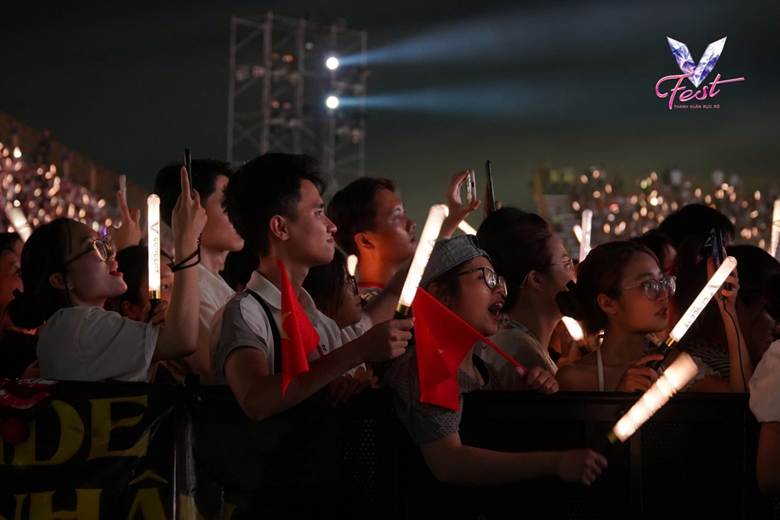 |
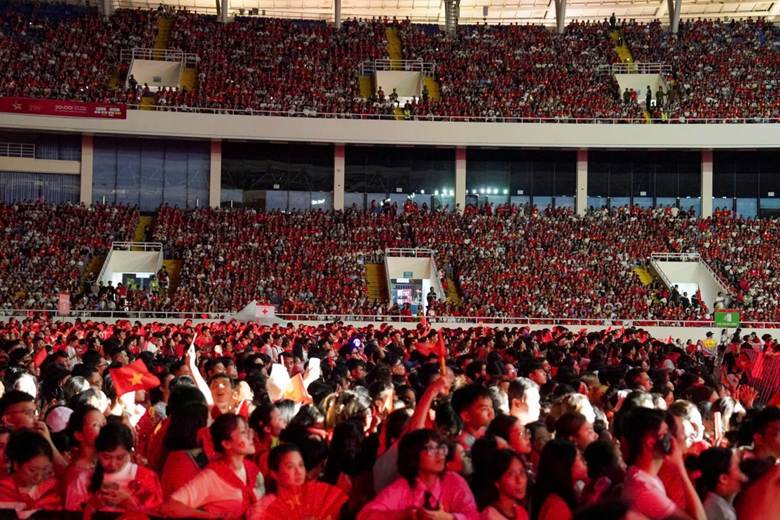 |
Associate Professor Dr. Bui Hoai Son also pointed out that Vietnam is facing many great opportunities in terms of economy, international position and scientific and technological progress, but at the same time, it is facing challenges such as climate change, global competition, and the risk of losing its identity. Therefore, "from the Fatherland in the heart is not only a source of pride but also a reminder: we must work together to build a Vietnam that is not only rich and strong but also happy and humane - a country where every citizen feels safe, respected and has the opportunity to develop".
He concluded that a nation’s soft power lies in its culture, and patriotic music is “one of the most powerful means of nurturing that power.” When a song like “My Homeland Vietnam” is played, it not only touches the hearts of Vietnamese people in the country but also makes overseas Vietnamese around the world feel like they belong to a common community called Vietnam.
Following the series of explosive "national concerts" in August, audiences will continue to immerse themselves in large-scale music and art events. Most notably, the special program "Proud to be Vietnamese", considered a highlight following "Fatherland in the Heart", "V Concert - Radiant Vietnam", "V Fest - Glorious Youth" and the television show "Under the Glorious Flag". Right from its announcement, this music night has created a "fever" for tickets, especially among young people, promising to bring a fiery atmosphere and a strong spirit of national pride.
In addition, in August, Hanoi will also host major art programs such as “Hanoi – From the historic autumn of 1945” (August 15, August Revolution Square) and “Hanoi – Forever shining Vietnamese aspiration” (August 31, National Exhibition Center), along with many programs responding to the Great Festival in localities. All are elaborately staged and broadcast live, contributing to prolonging the excitement of the series of events celebrating the 80th anniversary of the August Revolution and National Day September 2.
According to Ha Phuong/VOV.VN
Source: https://baovinhlong.com.vn/van-hoa-giai-tri/202508/giai-ma-suc-hut-cua-cac-concert-quoc-gia-dcd1994/


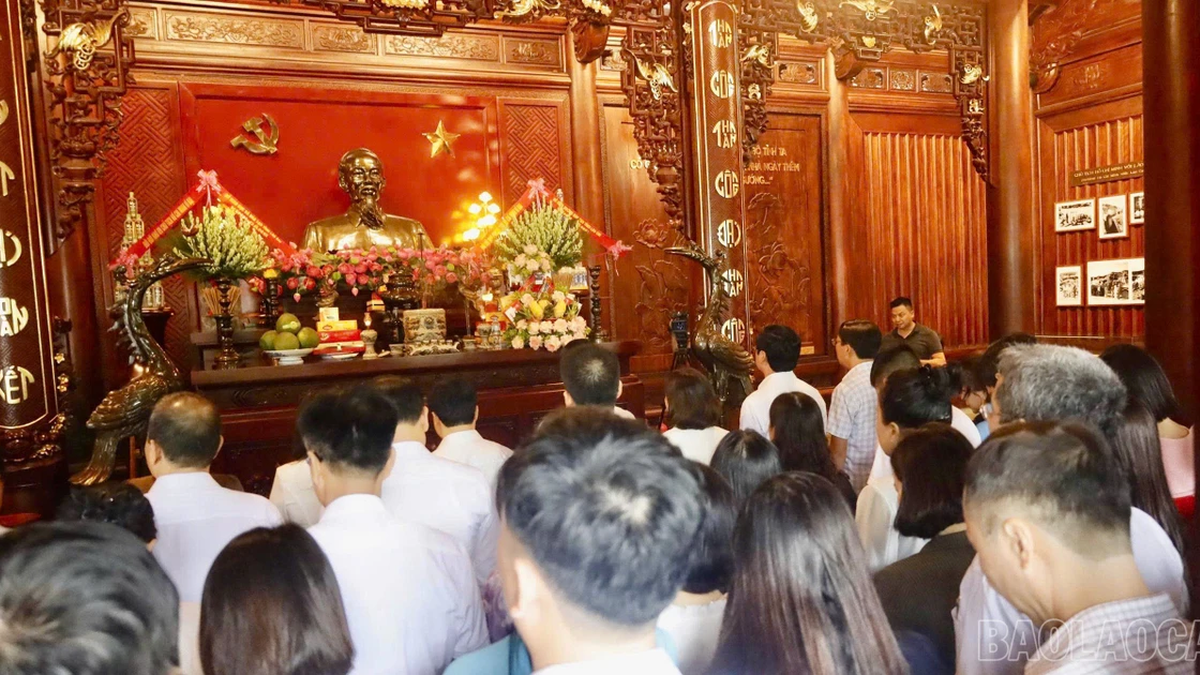
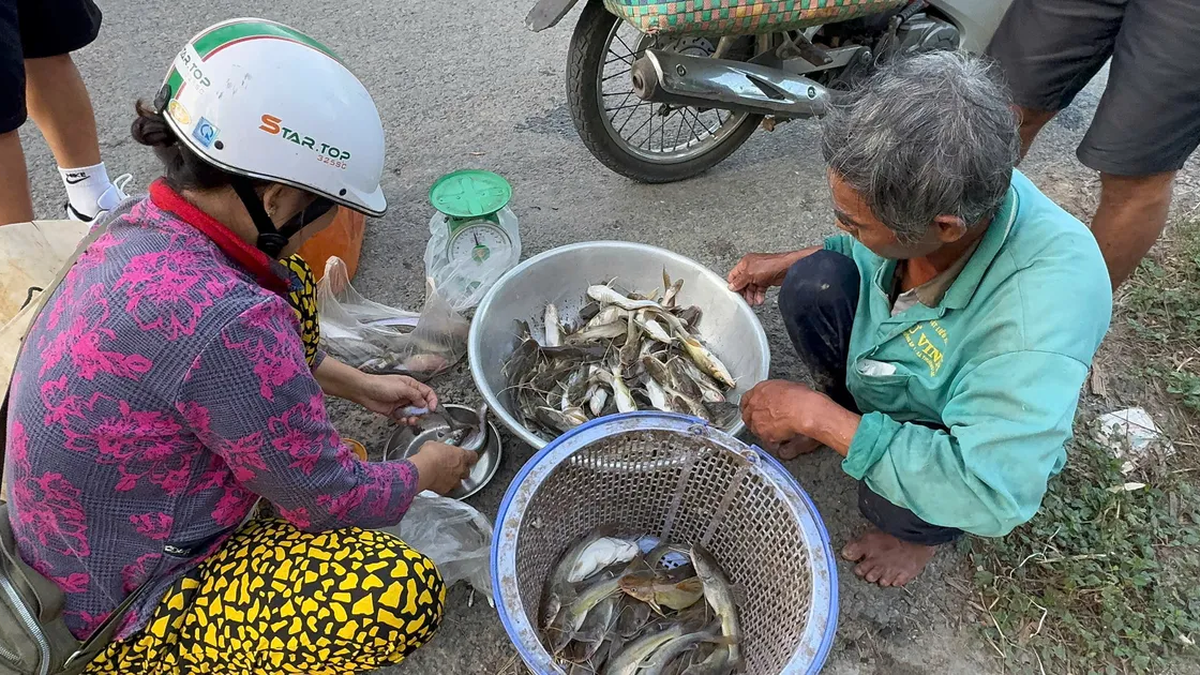
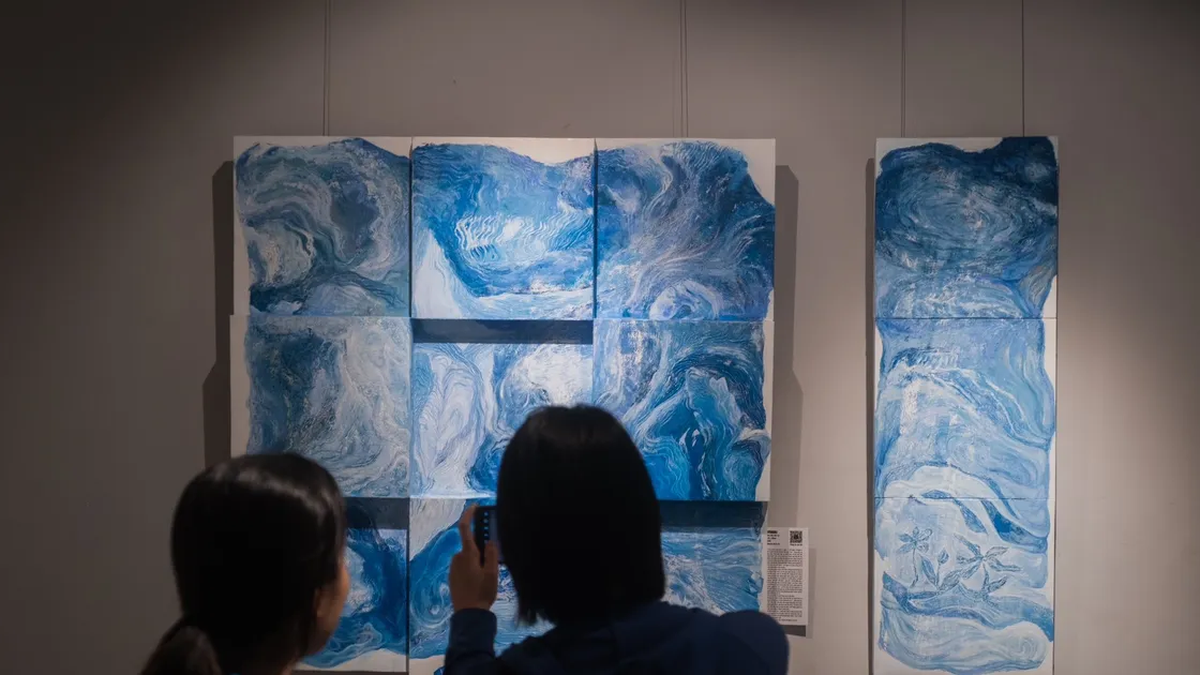
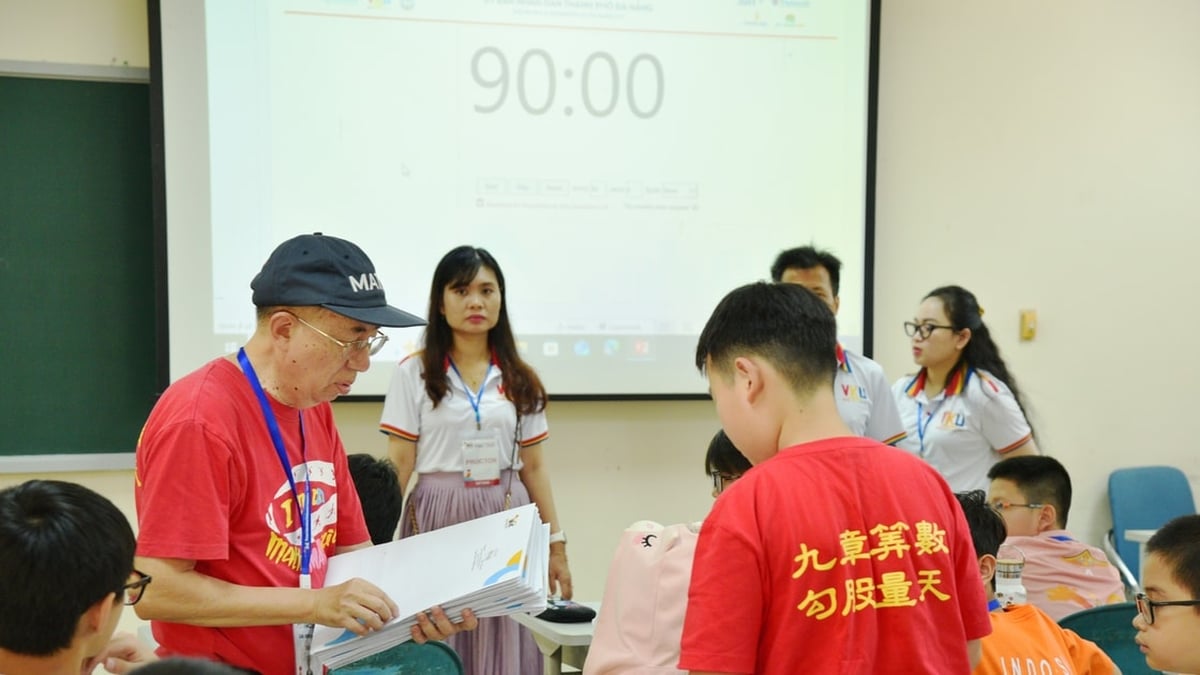
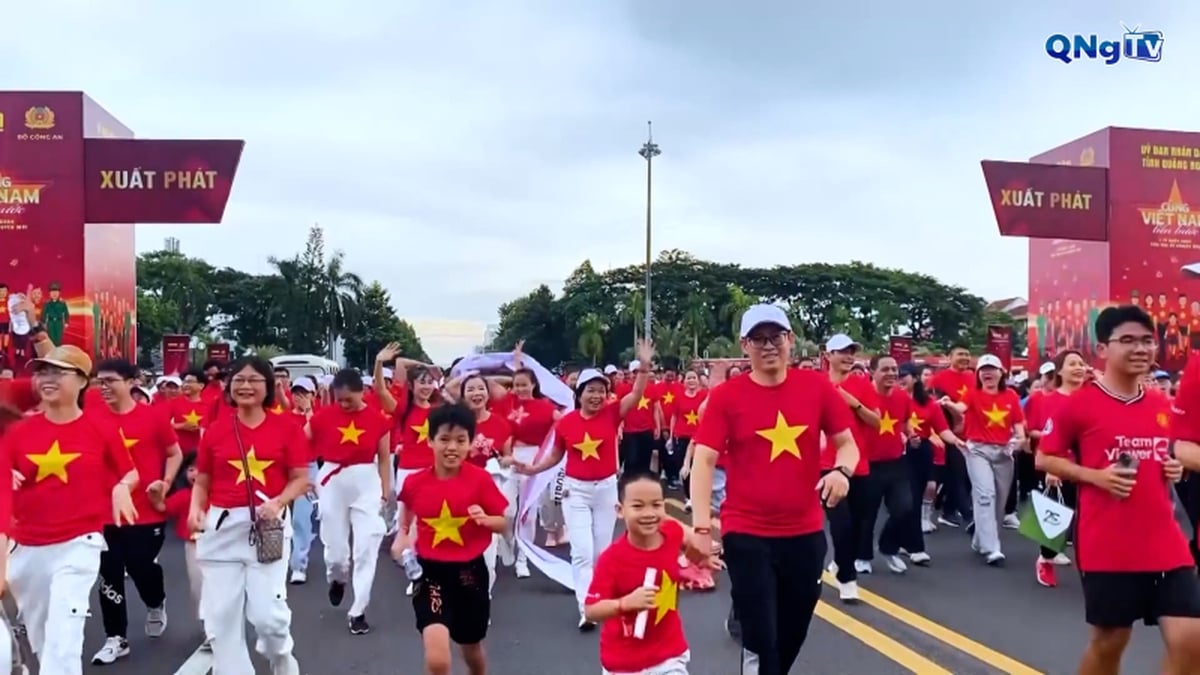
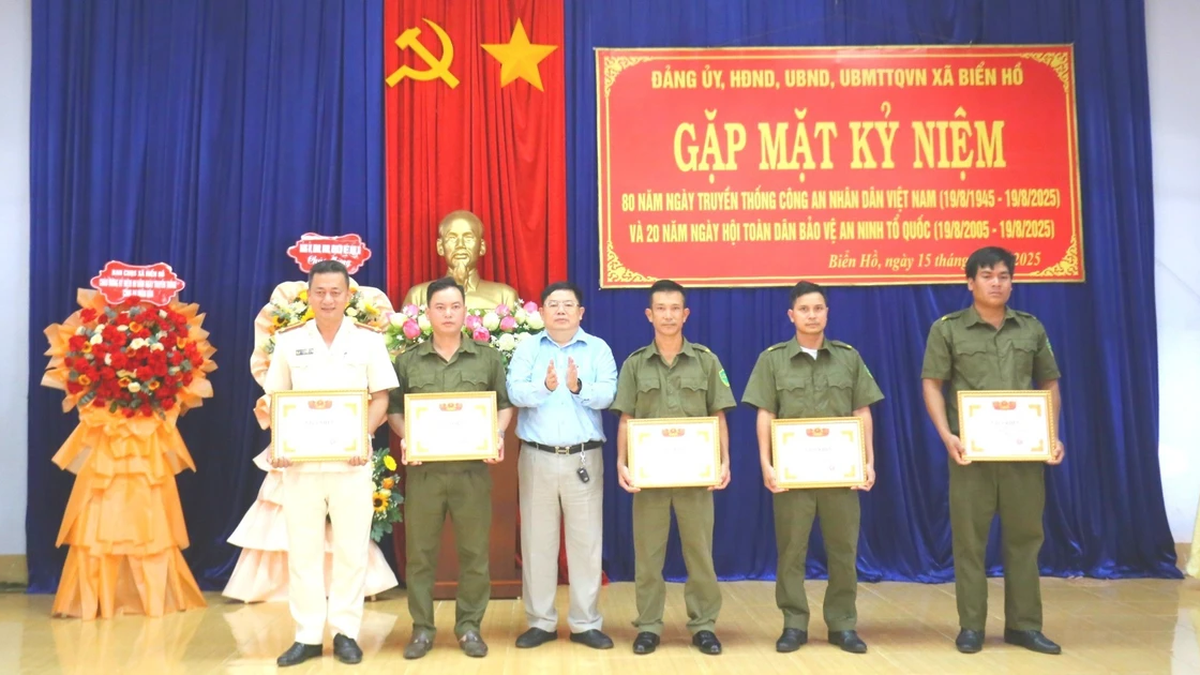

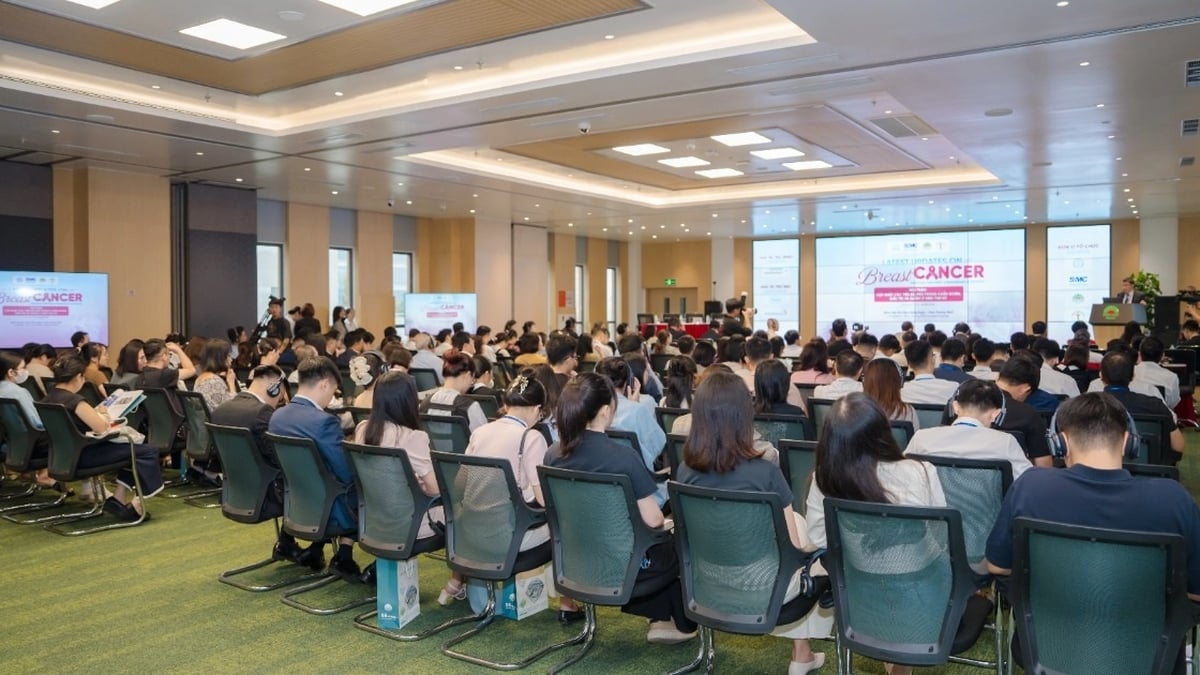
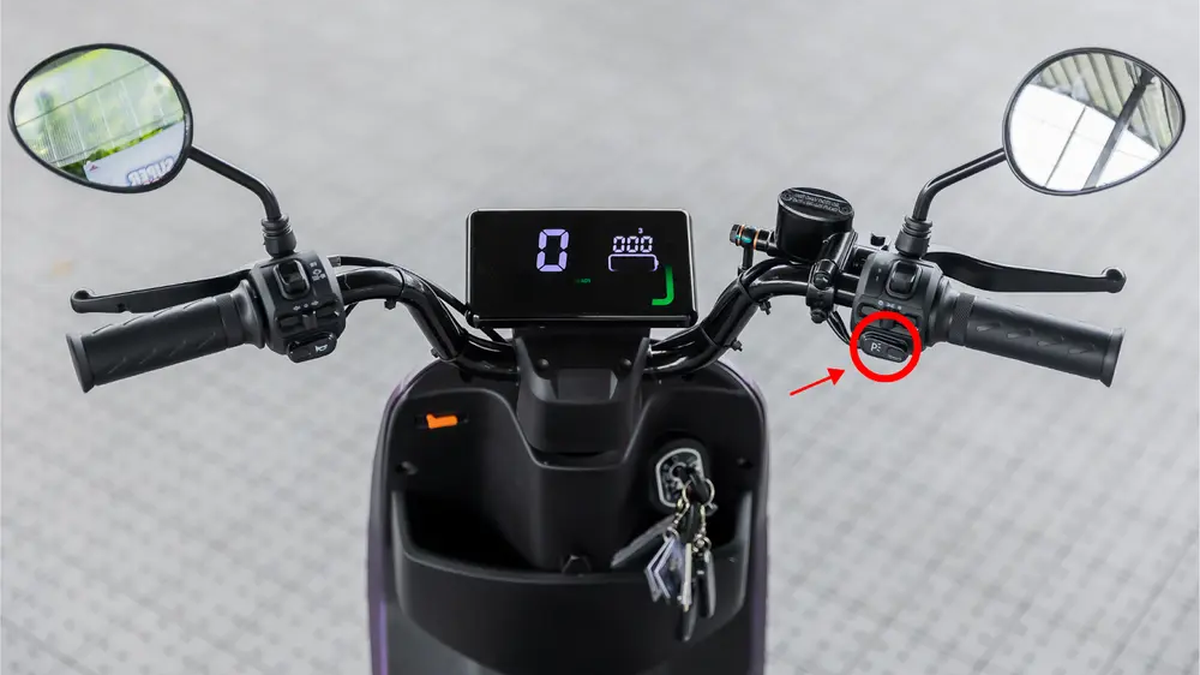
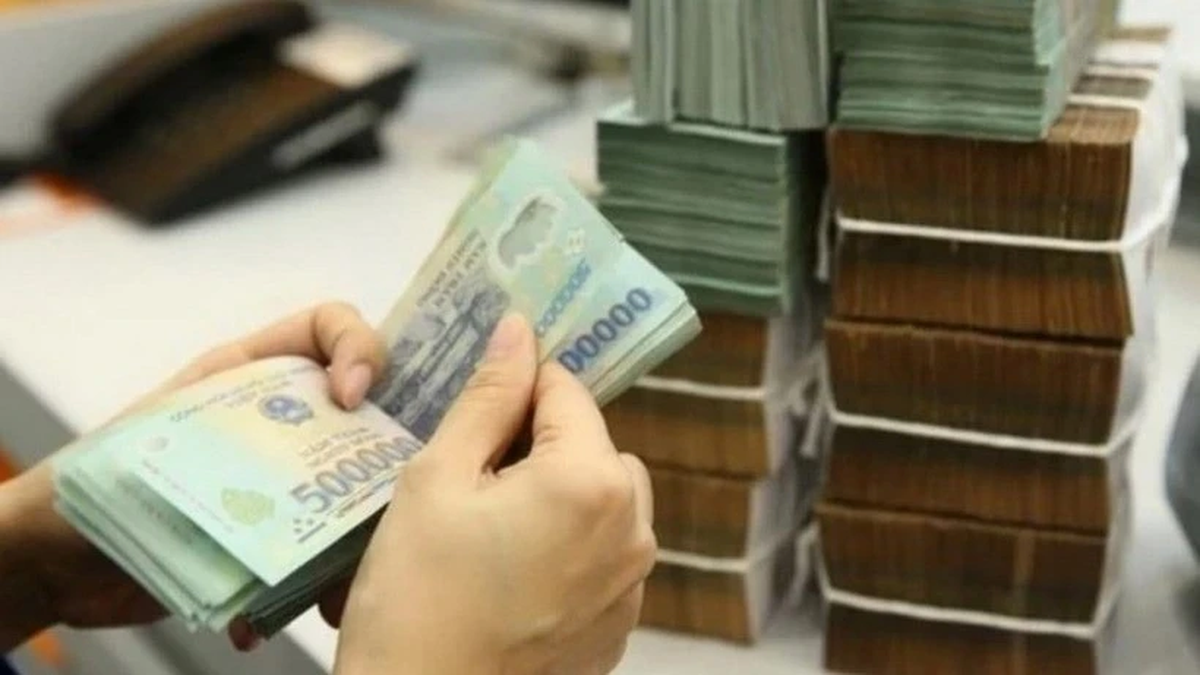










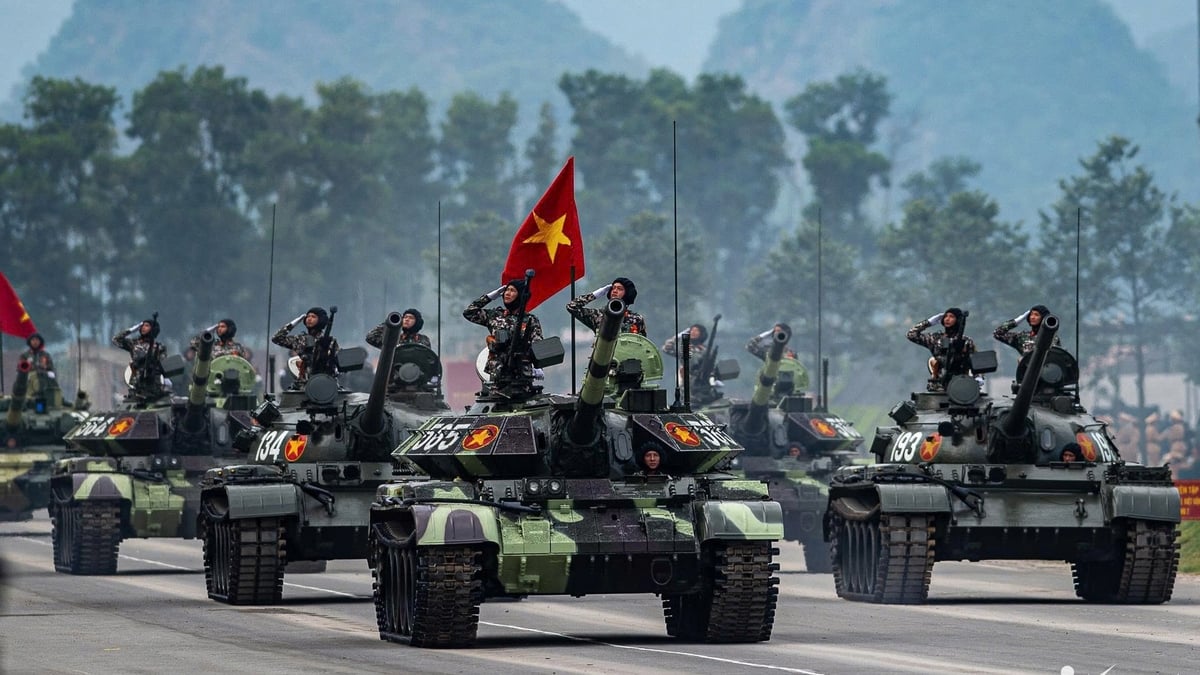
![[Photo] General Secretary attends the inauguration ceremony of the Ministry of Public Security Headquarters](https://vphoto.vietnam.vn/thumb/1200x675/vietnam/resource/IMAGE/2025/8/16/3ceec3a24ef945c18ae2b523563b749d)
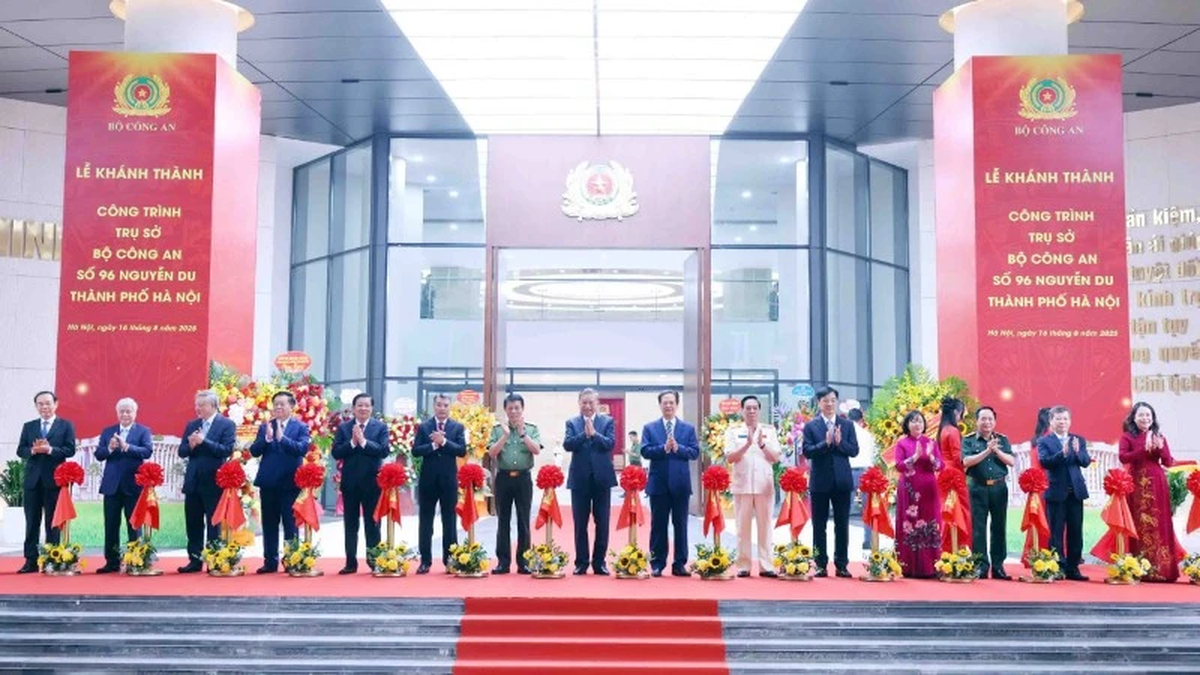
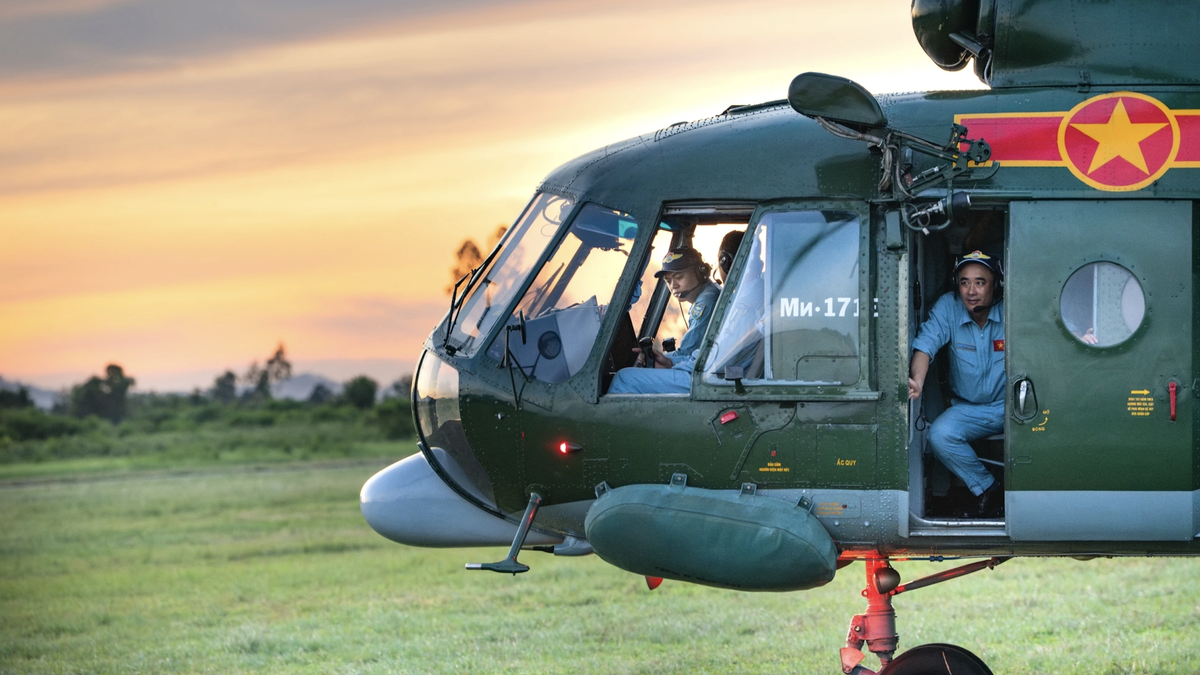
![[Photo] Prime Minister Pham Minh Chinh attends a special art program called "Hanoi - From the historic autumn of 1945"](https://vphoto.vietnam.vn/thumb/1200x675/vietnam/resource/IMAGE/2025/8/15/c1c42655275c40d1be461fee0fd132f3)
![[Photo] National Assembly Chairman Tran Thanh Man attends the inauguration ceremony of President Ton Duc Thang Memorial House](https://vphoto.vietnam.vn/thumb/1200x675/vietnam/resource/IMAGE/2025/8/16/23555950872d428a8708a1e2f94cbf59)
![[Photo] Prime Minister Pham Minh Chinh talks on the phone with Cambodian Prime Minister Hun Manet](https://vphoto.vietnam.vn/thumb/1200x675/vietnam/resource/IMAGE/2025/8/15/72d3838db8154bafabdadc0a5165677f)
![[Photo] “Moving forward with Vietnam” on the most romantic road in Vietnam](https://vphoto.vietnam.vn/thumb/1200x675/vietnam/resource/IMAGE/2025/8/16/0ee500bc59fd4468863261ee26f47fe7)
![[Photo] Red and yellow stars at the launching ceremony of the program "Moving Forward with Vietnam"](https://vphoto.vietnam.vn/thumb/1200x675/vietnam/resource/IMAGE/2025/8/16/076df6ed0eb345cfa3d1cd1d7591a66f)
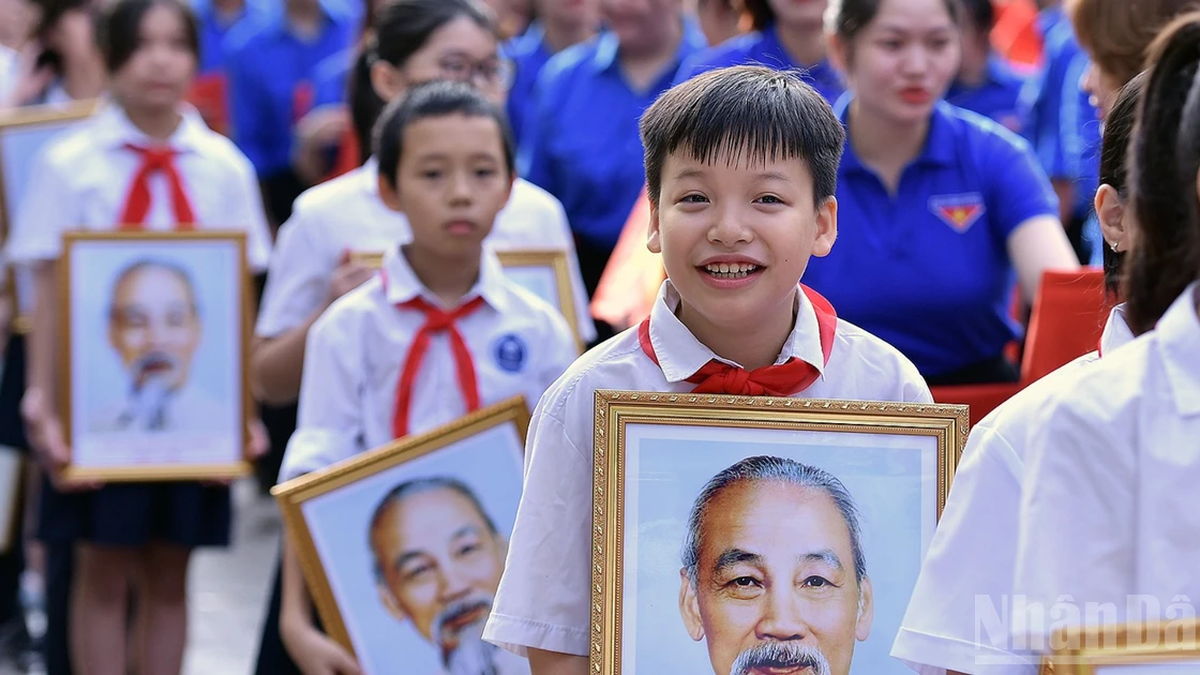
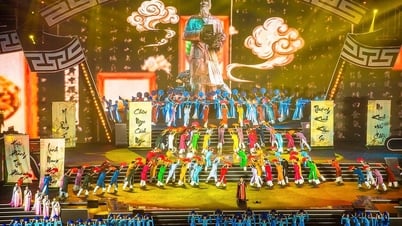

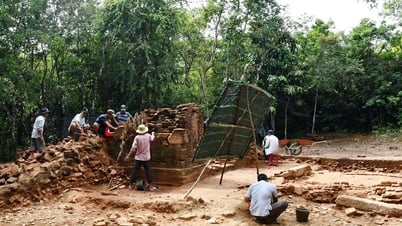

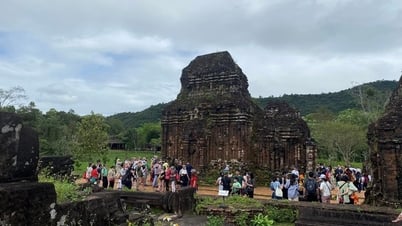



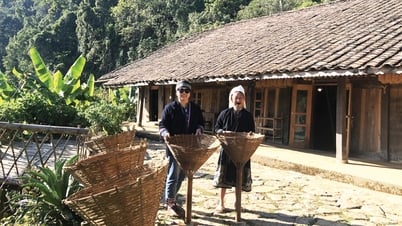



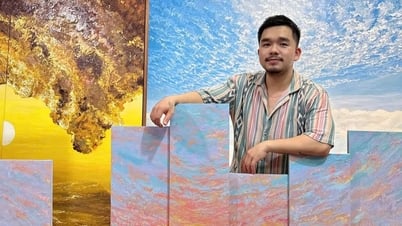
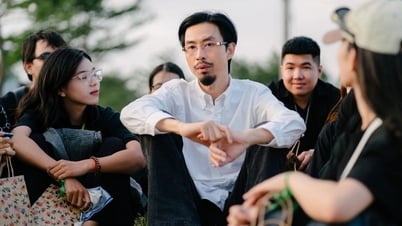

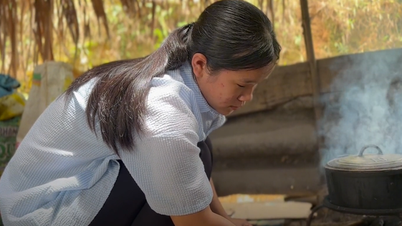



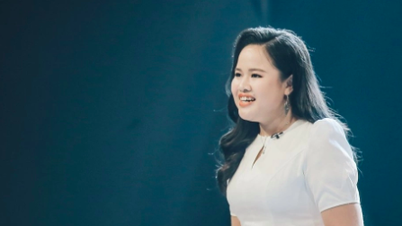

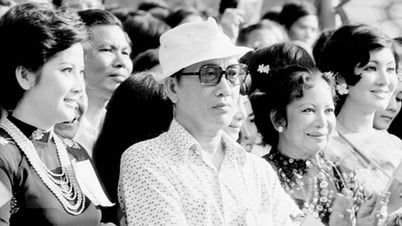
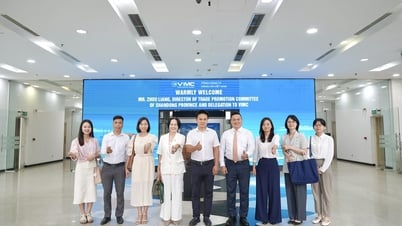

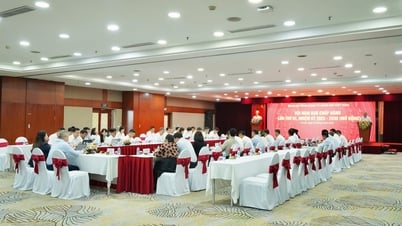


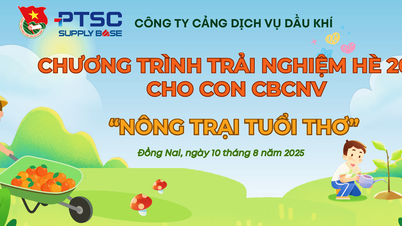

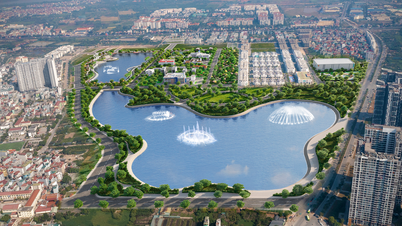
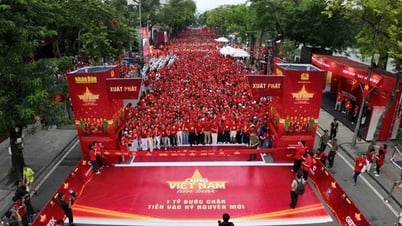

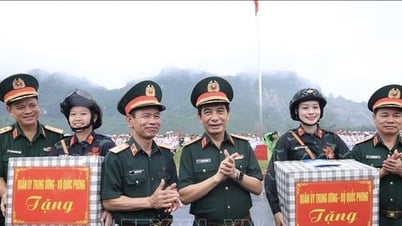

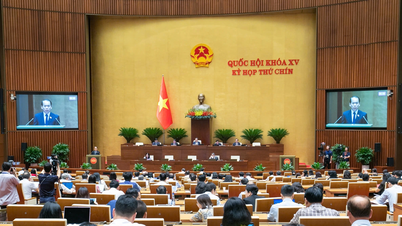
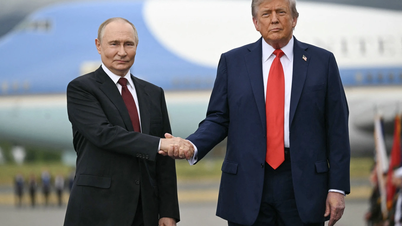
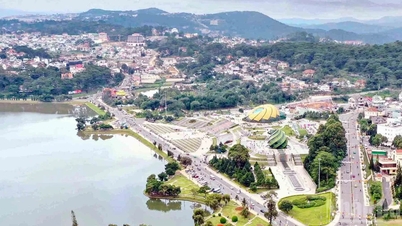

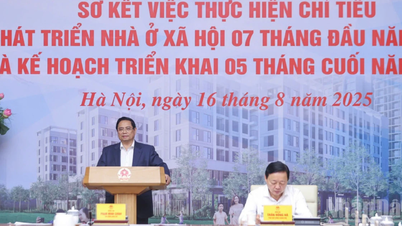
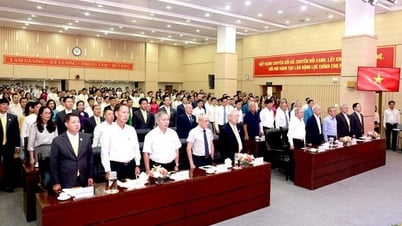

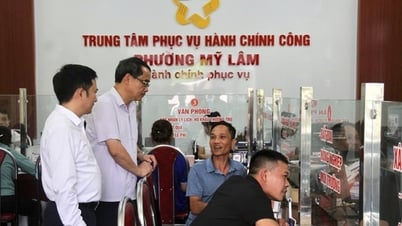
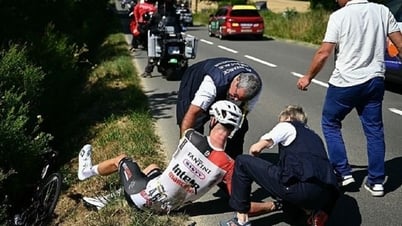

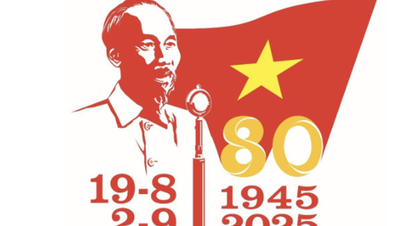
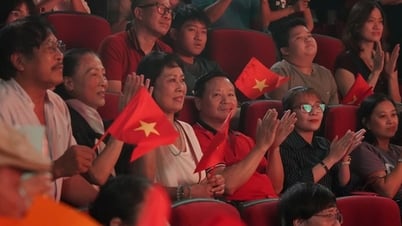
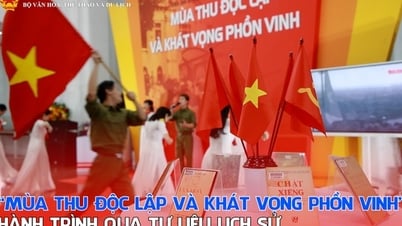





















Comment (0)